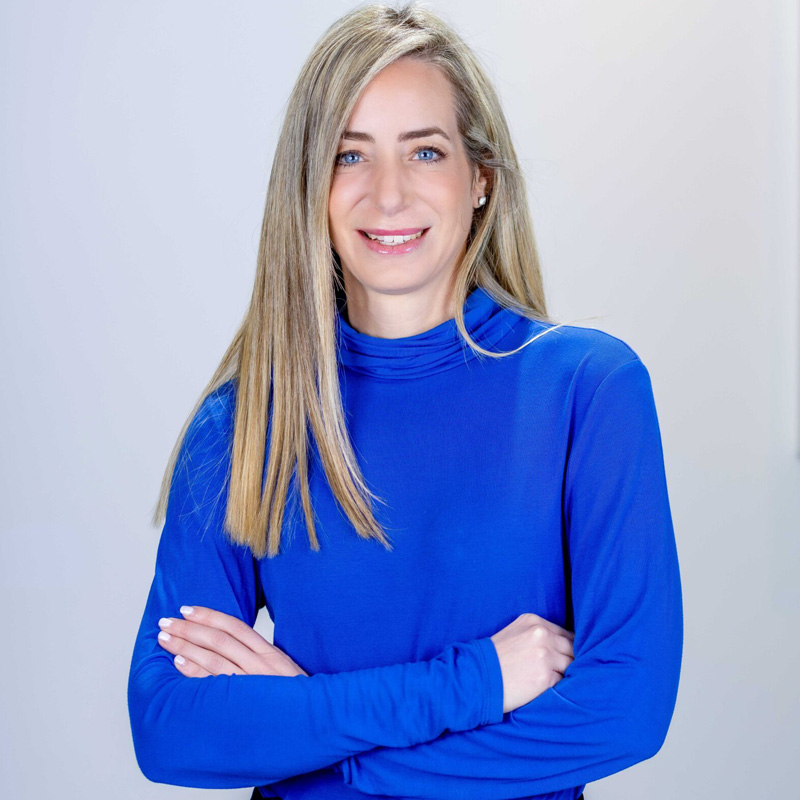Blue Onion is the financial data infrastructure layer that CFOs will rely on to power the next generation of AI . The Blue Onion subledger enables companies like Supergoop!, BarkBox, and a.k.a. brands to close their books daily–not monthly–with guaranteed accuracy. Blue Onion is the only platform that leverages powerful AI to automate the reconciliation process from each transaction all the way to the bank. The Blue Onion subledger validates data from the source, providing a foundation of financial truth to make smarter business decisions–faster. Founded in 2020, Blue Onion is led by co-founder and CEO Lyndsey Bunting, former VP of Finance at Birchbox who experienced the pain of manual reconciliation processes and inaccurate financial data throughout her career
We chatted with Lyndsey Bunting, CEO & Co-Founder, to explore how AI is transforming financial operations and shaping the future of accounting
How did you start your entrepreneurial journey?
I was really inspired by my grandfather and father, who both ran small businesses in the automotive industry. Watching them work made me interested in finance and accounting. I saw how understanding the numbers could help make better business decisions, and that’s what got me into studying finance and accounting in college. I always thought of finance as the language of business, and it was something I was genuinely excited about.
We actually started the company in May 2020, right in the middle of the COVID-19 pandemic. It was a challenging time, but it was also when we saw a real need for what we wanted to build.
What is the company’s mission and how do you plan to pursue it?
Our mission is to empower companies with financial data that’s accessible, accurate, and actionable. We want to make finance less intimidating and more useful in day-to-day decision-making.
We focus heavily on reconciliation, booking entries correctly, and ensuring clean data. Reconciliation is key because it helps businesses trust their numbers, and that trust is critical for making smart decisions. Accurate booking of entries ensures the integrity of financial records, and clean data is essential for reliable reporting and insights.
Looking ahead, we plan to expand into customer intelligence, so we can provide even more actionable insights to our clients.
Tell us the story behind starting the company.
We started in May 2020, during the peak of the pandemic. At the time, I was consulting with D2C brands, helping them build out their finance functions, and I kept seeing the same issues pop up. People were always asking me: “Is my data accurate? Am I booking entries correctly? Can you help me build a model?” It became clear that there was a bigger, systemic problem here that needed solving.
I had initially applied to Y Combinator in 2019 with a different co-founder and even travelled there alone. Later, I brought the idea to Charley and Manav. We decided to apply again and got accepted. Once we were in, we rented a house in Charlotte and spent three months working closely together to build the initial product.
I remember when we were just starting out, we asked potential customers, “If we build this, would you sign a contract?” Five said yes, and that was the moment we realized we were onto something real.
What is your moat? How do you think you stand out?
We take a different approach to building finance and accounting tools. Our core differentiator is data cleanliness and accuracy. In the early days, I personally logged into customer accounts to manually check every journal entry. I knew that if customers couldn’t trust their data, they wouldn’t trust the product. That foundational commitment to clean, accurate data still drives our work today.
Unlike some competitors, we take full responsibility for ensuring data accuracy. We also maintain a robust repository of clean financial data that’s ready for GAAP financial statements. Our customers appreciate that we don’t just hand them raw data; we make sure it’s right.
What are you most proud of?
Without a doubt, the team we’ve built. It’s such a privilege to see an idea come to life, but doing it alongside incredibly smart, kind, and dedicated people makes it even more special.
I also love hearing from customers about how our product has helped them. When someone tells me, “This tool has really made my job easier,” it reminds me why we do what we do.
Where will the company be 5 years from now?
In five years, I see Blue Onion becoming the go-to platform for clean financial data across industries. Right now, we’re focused on e-commerce and retail, but we’re planning to expand into other sectors that face similar challenges.
We also want to grow geographically, reaching markets in Latin America, Europe, the Middle East, and Asia. As we expand, we’ll continue adding more integrations and data sources. The ultimate goal is to open our platform to third-party developers, so they can build tools on top of our clean, accurate financial data.
Tell us about something unique in the company’s culture.
We place a lot of value on respectful disagreement and open feedback. We want everyone to feel comfortable sharing their ideas and perspectives, even when they challenge the status quo.
Empathy for our customers is another core part of our culture. We often hire people who have personally experienced the problems we’re solving. Their firsthand understanding helps us stay grounded and customer-focused.
Click here to visit BLUEONION website







